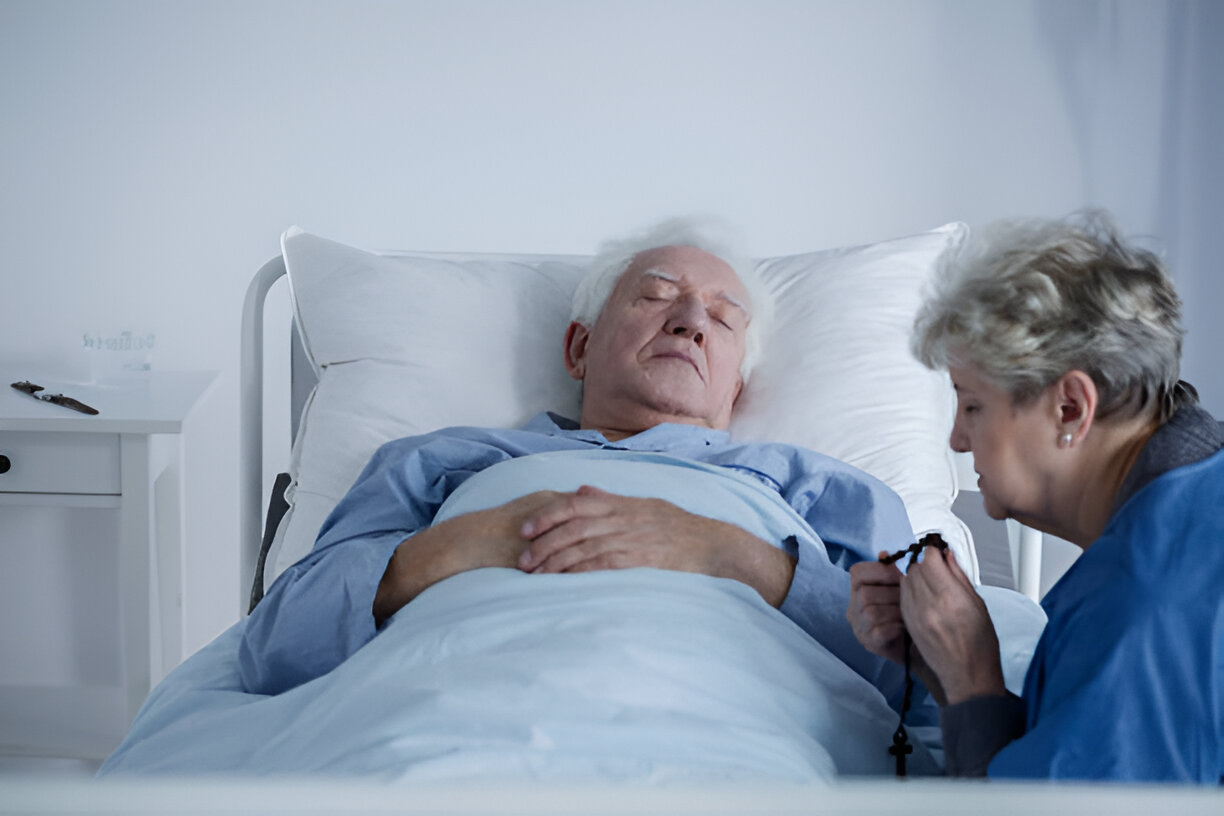As people near the end of life, many shift their focus from physical health to deeper, more personal questions. Thoughts about meaning, purpose, connection, and what lies beyond often take center stage. In these moments, spiritual care becomes as essential as pain management or emotional support.
Whether religious or not, individuals often experience a spiritual awakening or reflection during this stage. Hospice chaplains are trained to guide and support patients and families through this inner journey—offering presence, perspective, and peace.
This article explores the importance of spirituality in end-of-life care, the role of hospice chaplains, and what this support can look like for people from all backgrounds.
What Is Spirituality in End-of-Life Care?
Spirituality refers to a person’s sense of meaning, values, purpose, and connection—to others, the universe, or something greater. Unlike religion, which follows specific doctrines and practices, spirituality is broader and highly individualized.
At the end of life, spiritual care becomes important because patients often ask:
- What has my life meant?
- Is there anything unresolved?
- What will happen to me after I die?
- How can I say goodbye in a meaningful way?
Spiritual care offers patients the space to reflect on these questions in a safe, compassionate environment.
Who Provides Spiritual Care?
In hospice and palliative settings, chaplains are the professionals who deliver spiritual support. They are specially trained to work with individuals facing serious illness or death, regardless of religious background.
Chaplains are:
- Nonjudgmental listeners
- Culturally and religiously sensitive
- Supportive of patients, caregivers, and family members
- Members of the hospice care team alongside nurses, social workers, and aides
They do not impose beliefs or try to convert anyone. Instead, they meet people where they are—respecting their values, beliefs, doubts, and hopes.
Why Spiritual Care Matters at the End of Life
Facing death often leads to an emotional and spiritual reckoning. For many, spiritual care helps reduce fear, increase peace of mind, and provide emotional closure.
Benefits of spiritual care include:
- Decreased anxiety about death
- A greater sense of peace and acceptance
- Improved emotional well-being for both patients and families
- Enhanced communication and closure with loved ones
Patients who receive spiritual support often report feeling more “whole” and at ease, even when physically unwell.
Common Spiritual Needs at the End of Life
While every person’s journey is unique, hospice chaplains frequently address several recurring spiritual themes:
1. Life Review and Legacy
Patients reflect on their life—its meaning, accomplishments, and regrets. This process can be facilitated through storytelling, writing, or simply conversation.
2. Reconciliation and Forgiveness
Unresolved conflicts often surface. Chaplains help patients explore forgiveness—whether it’s forgiving others, seeking forgiveness, or forgiving themselves.
3. Fear of Death and the Unknown
Chaplains offer gentle presence to discuss fears about dying, the afterlife, or loss of control.
4. Saying Goodbye
Spiritual care includes helping individuals and families say final words, express love or gratitude, and create meaningful rituals.
What Hospice Chaplains Do
The role of a hospice chaplain is deeply personal and adaptable. They provide support in ways that respect a person’s unique spiritual, emotional, and cultural needs.
Chaplains may offer:
- One-on-one spiritual visits
- Conversations about meaning, beliefs, or doubt
- Guided meditation, prayer, or sacred texts (if requested)
- Life legacy projects (letters, videos, journals)
- Support for rituals (blessings, anointing, music)
- Family support meetings
- Coordination with outside clergy or spiritual leaders
They may also help families plan memorials, offer support after death, and provide bereavement resources.
Support for Families and Caregivers
End-of-life care impacts not only patients but their loved ones. Chaplains also serve family members and caregivers, who may struggle with anticipatory grief, guilt, or spiritual questions of their own.
Chaplains support families by:
- Offering a calm and compassionate space to talk
- Helping process difficult emotions like anger, regret, or fear
- Guiding important conversations between family members
- Supporting decisions around final wishes or rituals
- Providing grief support after death
Families often express deep gratitude for this guidance, especially during emotionally complex times.
Spiritual Support for All Belief Systems
Spiritual care is inclusive. Hospice chaplains are trained to support people from all walks of life, including:
- Christians, Jews, Muslims, Buddhists, Hindus, and others
- People who are spiritual but not religious
- Agnostics and atheists
- Those with Indigenous, cultural, or ancestral traditions
A spiritual connection might involve prayer, but it could also be expressed through:
- Nature and the outdoors
- Music, poetry, or art
- Meditation or mindfulness
- Family and human relationships
- Personal reflection or storytelling
The goal is not to prescribe a belief system but to honor and affirm the patient’s own way of finding peace.
Tools and Techniques Used by Chaplains
Hospice chaplains use a variety of methods to provide comfort and meaning:
Spiritual Care Techniques:
- Life Review Conversations: Discussing key life moments, accomplishments, regrets, and memories
- Rituals and Blessings: Lighting candles, holding hands, reading poems, or facilitating religious rites
- Meditation and Breathwork: Helping patients manage fear or discomfort through grounding practices
- Legacy Projects: Assisting with letters, video messages, or memory books for loved ones
- Silence and Presence: Simply sitting quietly with someone in their final days can be deeply spiritual
These moments are often where deep healing and connection happen.
When to Request a Chaplain
Spiritual care can begin at any point during hospice or palliative care. You don’t need to wait until the final days.
Consider involving a chaplain when:
- A patient begins reflecting on their life or mortality
- There is emotional or spiritual distress
- A family member requests religious or cultural rituals
- There are unresolved relationships or tensions
- The patient or family feels overwhelmed and wants to talk
Spiritual care can be brief or ongoing. The important thing is that it’s available whenever needed.
Spirituality and the Human Experience of Dying
Dying is more than a medical event. It is a human experience—one filled with reflection, love, fear, and often, transformation.
Spiritual care allows individuals to:
- Find peace and meaning
- Reconnect with loved ones
- Express final thoughts and wishes
- Be seen and honored as a whole person—not just a patient
Chaplains support this process with humility and compassion, recognizing the profound depth of the end-of-life journey.
Final Thoughts
Spirituality in end-of-life care is not about doctrine or conversion—it’s about presence, meaning, and peace. Whether rooted in faith, culture, nature, or personal values, this form of care addresses what truly matters when time is limited.
Hospice chaplains offer more than support—they offer connection, clarity, and comfort at a time when those gifts are needed most. By embracing spirituality as part of holistic care, we honor the dignity of every person’s life—and their death.

